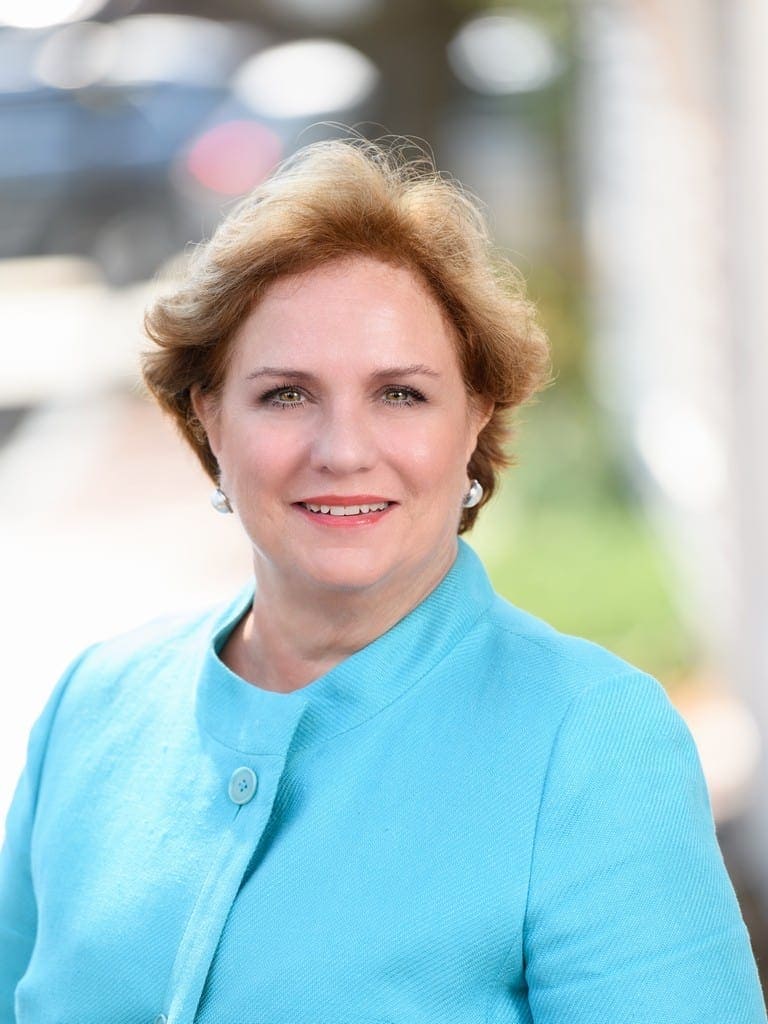What Real Estate Leaders Think About the Future
Last week, many of real estate’s top leaders gathered in San Antonio at the T3 Summit. In an interview format, CEOs and Presidents of some of the most successful real estate companies and brands spoke about the biggest real estate trends and what they think the future holds. If you missed the event, check out these highlights for takeaways and action items for anyone looking to grow their real estate brokerage or team.
Takeaways from the 2022 T3 Summit
- Technology Enables Efficiency
- Consumers Want a Seamless Experience
- The Power of a Brand
- Opportunity and Luck Both Matter
- The Most Successful Companies Have Fanatic Discipline
- Growing the Value of Each Transaction
- Creating More Diverse, Equitable, and Inclusive Companies
- Real Estate is Still a Lifestyle, Relationship, and Hyperlocal Business
- The Growth of Private Equity, Investment, and New Ownership Models
- Changes in How We Market
- The Second Home Ownership Opportunity
- Technology Partners Are Important
- It’s Time for Succession Planning and Exit Strategies
- Rapid Experimentation is Key
- The Need to be Market Proof
Technology Enables Efficiency
It’s likely no surprise that technology was a theme of this year’s T3 Summit. What may be surprising is the consistency with which leaders underscored the importance of technology in making companies more efficient and profitable. Technology can and should be used to accomplish more high value, people focused work, such as client and team relationship building, recruiting, coaching and development. A huge theme of the two-day summit was the importance of emphatically eliminating anything from agents’ and teams’ day to day work that can be automated, as well as how. By automating the basics, you have more time and attention to spend on strategic work and your team can focus more on what they do best.
To start your automation journey, first identify functional areas in your business that can be more efficient. Then map out the ideal process for that area, such as what you’d like your company’s lead follow up to look like or how invoicing should ideally work. Secondly, develop standards, such as a standard way data should be entered. Lastly, seek technology resources and/or partners to help you build the automations.
Technology plays a pivotal role in all of our lives, and there were other themes discussed for which technology was or will be an accelerant, such as changes in how consumers want to see homes and the importance of technology like 3D touring. On the financing side, cryptocurrency and decentralized finance, DeFi for short, were the buzz words of the summit. Due to regulatory hurdles and the likelihood municipalities will be slow to adopt the technology, blockchain seemed to be the trend most thought would take time to affect real estate. That said, alternative financing models and companies like Knock offering consumers both flexibility and a seamless experience are likely here to stay as the housing affordability gap widens and consumers look beyond traditional mortgages. The bottom line is that if you’re not using technology to make your, your agents’, and your consumers’ lives easier, you’re missing out. And you need time and attention to focus on the future, because we’re entering a new phase of real estate and consumer needs.
Consumers Want a Seamless Experience
Only a few months into the pandemic, it was clear that the brokers and agents who stepped up to the challenges faced by shifting consumer and societal needs would come out ahead, then and in the long run. This certainly seems to be true with the industry’s Cinderella, eXp Realty. eXp calls itself The Real Estate Cloud Brokerage™ and has from day one defied tradition in order to provide a superior digital experience for agents, buyers, and sellers. While eXp isn’t for everyone, and there was a lot of talk about how one-size-does-not-fit-all when it comes to brokerage models, eXp’s growth is phenomenal. eXp is adding 80,000 real estate agents a month now and continues to operate largely without any brick and mortar presence.
This is one reminder of the importance of adapting to what many consumers want now, a seamless, highly personalized online experience, to work from anywhere, and to still have a deep connection with a company and a brand.
As McKinsey advised companies in the early days of the pandemic, “to renew and refresh their connections to the people they serve, companies need to recognize what’s happening, and respond in three ways: digital excellence, safe and contactless engagement, and dynamic customer insights.” Research by Capgemini Research Institute echoed that sentiment, highlighting three main factors for how consumers choose brands now: 1) convenience, 2) health and safety, and 3) purpose. These trends have persisted as pandemic protocols have not and for real estate professionals, prioritizing the customers’ experience is as important as ever.
Everything from marketing to communication to paperwork needs to be digital first, mobile first, and work with the other tools needed to manage the lead through to a customer and a transaction. Integrations will continue to be key for real estate technology providers. For real estate brokerages, teams, and agents, relentlessly focusing on and prioritizing the customer’s needs also means using analytics to develop and maintain deep customer understanding before your customers are your customers, while your customers are working with you, and well beyond the close.
The Power of a Brand
Know who you are and what you do. That was the message repeated multiple times from the T3 Summit stage. And it was clear from the stories they shared which companies had taken it to heart. A lot of people believe strong brands sell themselves, that’s part of why franchises succeed. The truth is there’s a lot behind building a successful brand and communicating your brand identity with the world. Check out these tips for more on how to build your brand online.
Opportunity and Luck Both Matter
This year’s T3 Summit opened with UC Berkeley professor Morten Hansen, co-author of Great by Choice, award-winning researcher, and former Harvard Business school professor guiding the room of real estate leaders through the trials and tribulations of great leaders of the past. Morten has studied great companies over time to find out what separates them from the good companies and though there are a few things, one of the most interesting was how companies, and people, react to the lucky moments in their lives. According to Morten and his co-author Jim Collins, we all experience lucky events in our lives, good and bad. Lucky events are those that are outside of our control and are unpredictable. When you chart the differences in company performance over time, one trend emerges as it relates to luck: great companies prepare for, recognize, and take advantage of luck. Great companies prepare for bad luck events, knowing they will come, just not when. Great companies are also able to spot good luck events when they happen and, once they see them, execute brilliantly in the moment and avoid squandering them.
The Most Successful Companies Have Fanatic Discipline
Fanatic discipline is the first lesson from Jim Collins’ and Morten Hansen’s book Great By Choice and was a consistent theme as leader after leader got up on stage to share their top trends and advice. Fanatic discipline means acting consistently against core values, goals, and performance standards. It’s setting a target for reliable growth over excessive or non-existent growth, and then being maniacally focused on achieving it. What separates great companies from good companies is following through and ensuring your actions match your words, as well as having the vision to follow. Great leaders, visions, and execution are also concrete. Instead of setting “great customer service” as a goal, for example, setting a target of “solve problems in 24 hours” is much better, and then staying focused on and working hard to achieve it is essential.
Growing the Value of Each Transaction
There are primarily three paths companies have chosen in terms of how to handle ancillary services, i.e. to provide buyers and sellers with the other products and services they need as part of a home sale transaction outside of the real estate agent’s services, such as insurance, title, mortgage, moving services, and more. Companies have typically chosen to take these services in house, buying or building teams to provide things like mortgages, partner with others providing these services, or refrain from providing ancillary services and instead focus solely on being as good at the real estate sales aspect as possible. A fourth option is a hybrid approach where a company invests in and becomes a partial owner of a partner providing these services. Regardless of the approach, the trend toward consumers wanting a much more seamless experience has continued and is an area in which companies need to know how and what they want to provide, whether a one-stop-shop approach where consumers can work with them throughout the process for all their needs, a more holistic advising approach and seamless technology solution, a best-in-class partner network solution, or something else altogether. The big opportunity here is in the ability to build and cultivate a relationship with a potential or current homeowner wherever they are in their life and then use that relationship and data to market solutions when they need them, as opposed to fighting over transaction ready customers only. The more products and services your company provides to the same person, the bigger the piece of pie, so profitability grows, and the better the understanding of who they are and what they need, so you can use technology to understand when they need something else and reach them well before anyone else does.
Creating More Diverse, Equitable, and Inclusive Companies
This year’s conversations around diversity, equity, and inclusion centered on two themes. The first, how it’s imperative for companies to prioritize diversity, equity, and inclusion for economic reasons. Depending on where you are, the level of diversity in your service area will differ and there’s no doubt that the United States is becoming more diverse. People are increasingly looking to work with companies they think understand them and their experiences and it’s difficult to do that if everyone has the same background. The second theme mirrors a theme described previously and that is the importance of following through and acting on what you say. Examples included creating a program to help finance mortgages for low income buyers, offering incentives for diverse franchisees, offering different and additional training and development programs, and changing hiring practices, including setting specific goals for diverse talent. Speakers encouraged leaders to think about what they’re saying and what they’re doing, and the enormous upside to embracing diversity, equity, and inclusion.
Real Estate is Still a Lifestyle, Relationship, and Hyperlocal Business
With all the talk about change, there was a good bit of talk about what’s the same, mainly the nature of real estate as a relationship based business and process. As Nick Bailey said, “We sell the connection of buyer and seller and the service to get it done” and that hasn’t changed. Others spoke about the importance of knowing your market, knowing your customer, knowing the lifestyle, and knowing the differences between them, for example, how selling luxury real estate is unique. Because of the incredible growth in the last couple of years, there may be agents who have become complacent with the level of local expertise and service needed to succeed, as well as how to effectively market and differentiate themselves. Similarly, brokerages may not be consistently adding value to and strengthening relationships with their agents, especially if they’re bigger and also if they haven’t figured out how to successfully connect with each other digitally. As one speaker said, we’re all looking for deeper connections. It’s not just consumers; it’s peers, employees, partners…everyone.
The Growth of Private Equity, Investment, and New Ownership Models
Coming off of two years of unprecedented growth, it would have been odd not to hear talk of growth, what’s fueling it, and whether, or when, it will stop. Of course, the pandemic led to a very successful run for most real estate companies, especially those poised to adapt and take advantage of the changes it brought forth. There are also demographic shifts fueling market dynamics – the U.S. (and many other parts of the world) has an aging population, and is seeing the greatest generational transfer of wealth just start, from baby boomers to millennials, among other things. And yet, other factors have also accelerated growth, including an increase in private equity support and involvement in the real estate industry, new investment strategies and multiple owner operator models, and more companies leveraging networks to grow. The individual owner is becoming more and more rare and most seem to think this trend will continue, though not necessarily at the same pace.
Part of why joint ownership, private equity investment, mergers and acquisitions, and networks are appealing is because economies of scale can help alleviate upward pressure on profit margins. Because of this, a standard merger or acquisition (commonly referred to under one umbrella of M&A) is also a popular method for increasing resources. In June, @properties acquired Suburban Jungle, a pre-search consultation service. For @properties, the acquisition gives them access to referrals and lead generation sources, while Suburban Jungle will gain access to more resources to help expand their platform capabilities; a win-win relationship for both. Another path to accelerate growth is through private equity investment like When Permira invested in Engel & Völkers, both companies described the investment as necessary to enable the company’s “digital transformation journey” and fuel international growth. It’s not impossible for smaller brokerages to grow, and some very well known independent brokerages have successfully made the case that bigger is not always better, and the consolidation we’ve seen in the industry, on both the brokerage side and the technology company side, seems almost certain to continue.
Changes in How We Market
Another trend about which some speakers seemed quite bullish is the opportunity and need to change how real estate companies market themselves, which as Nick Bailey put it, “is fundamentally how we do business.” Most agents will say the majority of their business comes from past customers and that may be true, but data shows that agents miss a ton of business from their sphere. On closing day 94% of buyers say they would use their agent again. Only 13% do. The industry as a whole has yet to put the right strategies and systems in place to effectively get more business from the people with whom they’ve already worked. And this is where both technology and data come in. In the next few years, the companies who are using data and technology to reach the 25 people who matter most at any given moment, as opposed to the 2,500 people in an area, will be most successful. Some companies are already doing this. What if as a brokerage and agent, recognizing people already have your data frees you up to use it to your advantage to grow your business? Whether it’s knowing what’s going on with your past customers and whether they’ve had, or are considering, any changes, or using it to personalize content so not everyone sees the same monthly newsletter, data is the key to unlocking efficiency and growth. It’s also the key to a better experience as data can help you understand what your customers need. One example mentioned is that cash buyers have always been around, but the cash offers now are different. There are more cash buyers looking to keep their property and rent long term now vs. previously most buyers offering cash were looking to flip a property. What if you had signals to alert you to someone in your sphere considering an investment property and could tailor how you reach out to them to educate them on different options for passive income? This is just one example of the many applications for which marketing technology and data are currently being used, and could be used much more, to keep people engaged in a meaningful way until they’re conversation-ready, and then to get them transaction-ready.
The Second Home Ownership Opportunity
One theme of this year’s T3 Summit was change and uncertainty. Multiple speakers shared stories of taking advantage of good luck situations, and in some cases, the perils of not being prepared for and adapting quickly enough to bad luck situations. While speakers emphasized different trends, several opportunities were highlighted as unintended by products of the pandemic. One of these is the opportunity to focus on second home ownership as being more accessible and appealing to younger professionals working from home and looking to have options. Especially without the option to travel to as many places and as a continuation of the trend toward lifestyle as a key factor in where, and what, people buy, if you’re in a destination area that’s even remotely popular, you really could sell to anyone, anywhere. To take advantage of this opportunity, be ready to reach potential buyers wherever they are and focus on the lifestyle of the area, among other things.
Technology Partners Are Important
As Carl Leibert of kwx put it, “Once you’re behind, you can’t catch up.” Whether you agree or not, a lot of the advice to real estate leaders was to leverage partners for as much as possible, especially technology and marketing, because if you haven’t already built it, it will take too long and be too expensive to build it now just to provide a similar experience as everyone else. Always stay looking at least six months ahead and invest in what makes your company stand out. Then trust partners with the rest.
It’s Time for Succession Planning and Exit Strategies
Business leaders are thinking about their 5-10 year exit strategy and advising others to do the same. The key is, it’s not enough to have a succession plan or exit strategy, leaders need to be constantly thinking about, planning for, and executing against strategies to maximize the value of their asset, which is their business. A good question to ask is how are you growing the value of your business. Your business should be resilient and hold its value regardless of whether your top agents are affiliated with you. Considering what that value is and how you can strengthen it is a worthy exercise for all, even if you don’t have plans to exit.
Rapid Experimentation is Key
The ability to experiment quickly is essential to innovating and thriving during any market. Test ideas on a small scale, make sure each experiment has a clear hypothesis, controlled test, and data to evaluate its impact, and recognize not every test will succeed. If you’re not a huge brokerage like Realogy, who can test new programs with one brand before rolling it out to all of them, you can test new ideas with a few agents or in one market. The upside to developing the ability to rapidly test, learn, iterate, and scale is that you can innovate without risking a ton of time and money on a big bet that may not pan out. There may very well be a time and a place for big bets and integrating rapid experimentation into your decision making process and your culture will almost certainly lead to better performance down the road.
The Need to be Market Proof
Above all, this year’s T3 Summit focused on resilience. Whether we are facing more uncertainty in our lives and the world, or less, we will always face some unknowns. There’s tremendous value in preparing for the unknowns so we are in a better position to thrive regardless of what’s going on around us.
Did you attend this year’s T3 Summit? What would you add to this list that stood out to you? We’d love to hear from you!









